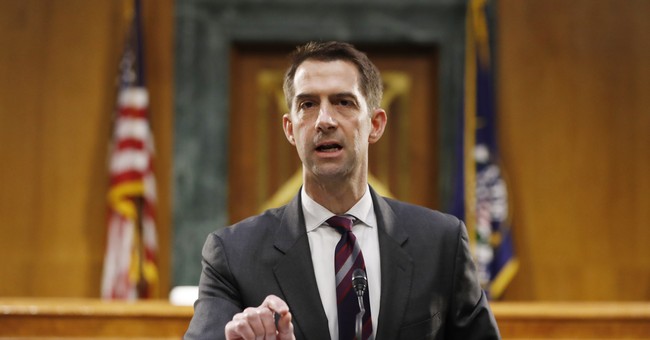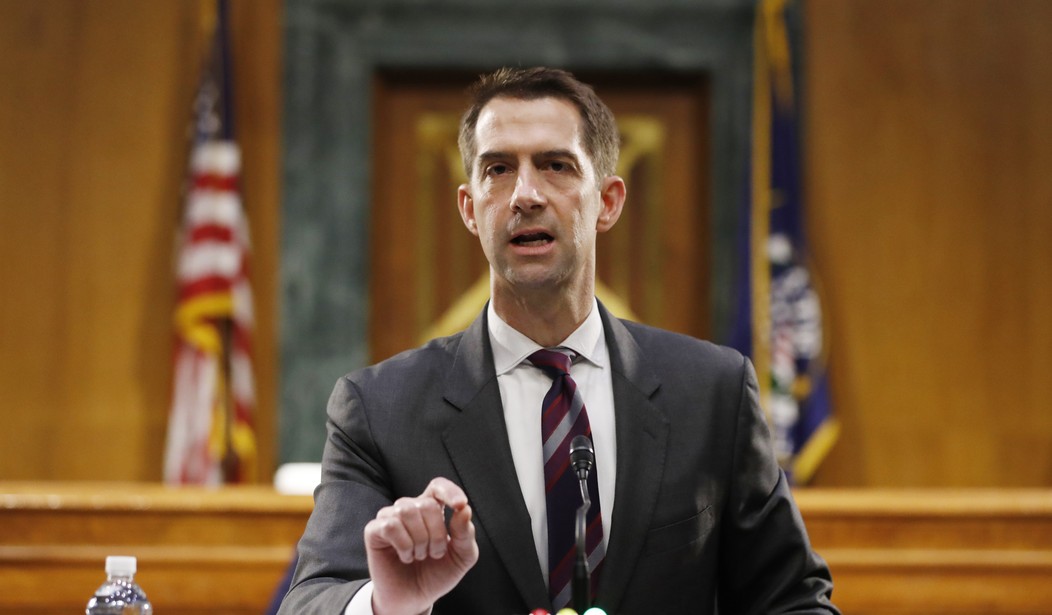
I have mentioned before (several times, and I know to the annoyance of some of you) that while I am a senior editor here at RedState, my primary job is in education.
I teach United States history to high school students. I make it a point to be very open not only about my own politics and beliefs, but about all the viewpoints out there and encourage frequent discussion. If a student has a question or disagreement with a statement, I invite them to be vocal about it.
Some students have come into the classroom and have challenged me on many subjects, from current events to the events of the past that have shaped our nation. If a student has felt that their opinion was mocked or belittled, I’ve owned up to it and given them the floor to respond. It may take some time out of the class, but it ultimately benefits them to let their voices be heard.
There is a difference, though, between differing views and flat-out misrepresentation of facts. The 1619 Project, an alternate view of American history presented by the New York Times, is one of those. Based on a lie — that the American experiment was established not to promote freedom and democracy, but to protect the institution of slavery — the project is an attempt to rewrite American history to fit the distorted vision of people who wish to tear down all that the country represents.
The 1619 Project was then made into a quasi-curriculum for schools who wish to teach it to their students. As abhorrent as I find that, though, it is their choice to ruin the education of their students, and it is incumbent on the parents to take action. More importantly, though, it is not the job of the federal government to determine what curricula are or are not acceptable.
That is the premise, though, of a piece of legislation being pushed by Arkansas Senator Tom Cotton.
Cotton’s bill, if passed, would strip federal funding from schools that adopt 1619 Project-related curricula. Completely ignoring the harm that stripping that funding could cause (we’ll get to that in a moment), it would set a very bad precedent in American government.
The problem with Cotton’s legislation is that it goes against the spirit of the Constitution to do what he’s calling for here. The Constitution is silent on matters of education, which means that the matter falls to the states. It’s the same argument conservatives typically use as an argument against the Department of Education, and it is the correct one.
Legislatively, it’s a bit murkier.
There is past legislation that has influenced schools greatly. We have the Individuals with Disabilities Education Act (IDEA), of course, which is a civil rights matter and largely agreeable to everyone involved. Even conservatives have kids with exceptionalities that need to be addressed and provided for by the school system. The act gives children with special needs and their parents the ability to fight for and have access to educational opportunities that meet those needs.
More recently, we also had No Child Left Behind (NCLB), which was an absolute disaster in terms of trying to up the rigor and, therefore, the success of our students, and we have the Every Student Succeeds Act (ESSA), which is better at identifying needs in schools to improve student performance, but in some areas still runs the risk of going too far in trying to legislate what schools should and should not be doing.
The one thing we specifically do not need, though, is legislation (or executive action, for that matter) that specifically addresses curricula, as that is simply a bridge too far, just as much as trying to force states to adopt Common Core by tying it to funding was.
If a school system or state wishes to adopt the 1619 Project as a curriculum, then that is their choice and they’ll eventually suffer for it because it is premised on a lie and ignores a ton of historical documentation in order to prove its thesis. It is not and should not be, however, the job of the federal government to dictate what curricula are and are not acceptable.
We must recognize the slippery slope that is allowing Congress or the Executive Branch to act as though they have permission to dictate what is and isn’t acceptable for our kids to learn in school. That is a decision that should be left up to states and districts.
If Congress has the ability to tell you what curricula isn’t acceptable, then it has the ability to tell you what is, and if Congress and the White House turn progressive, you will see education initiatives you otherwise are appalled by — like trans-inclusive sex education for elementary school students, for example — being pushed out and forced on students across the nation. So, if you’re in favor of Cotton’s legislation, you are giving the Democrats permission to push the envelop further should they take over the Senate and the White House this year.
On top of all that, we know that a one-size-fits-all policy does not work, especially in education where communities are diverse and have cultural needs as well as academic ones. While American history is not a subject that should be too different for various communities, the idea that the federal government should dictate what should and should not be taught in schools is a bad idea. It is one we should avoid.













Join the conversation as a VIP Member